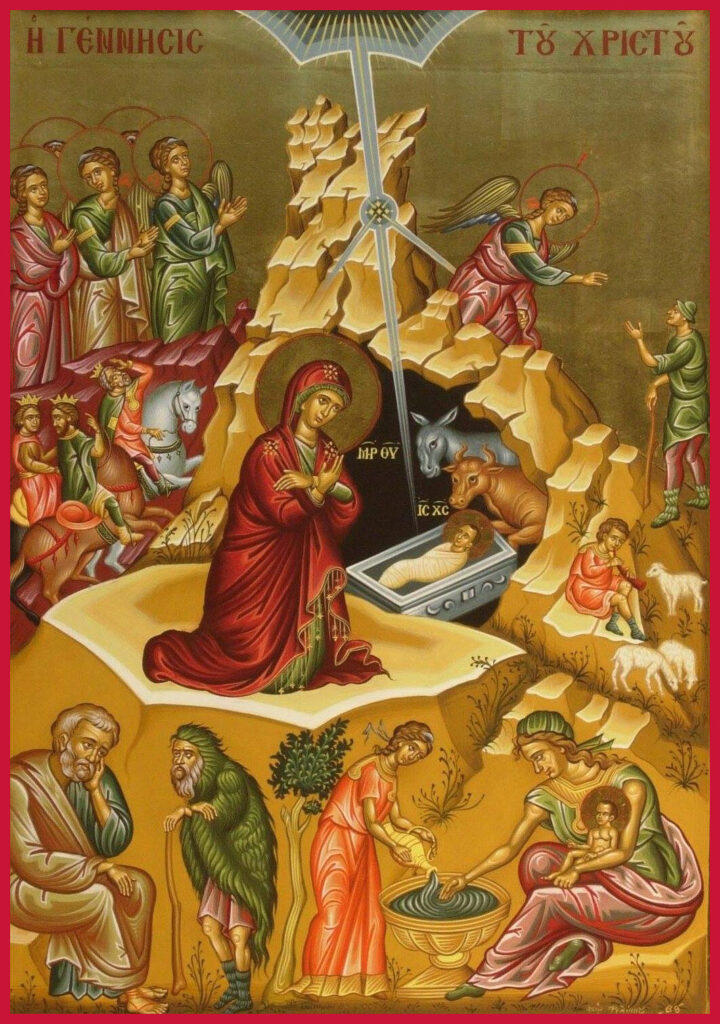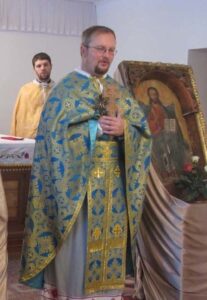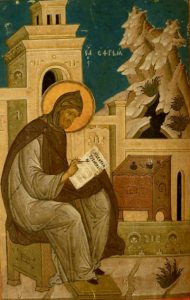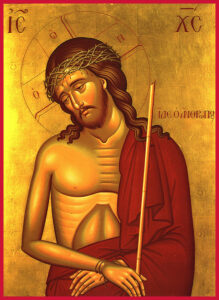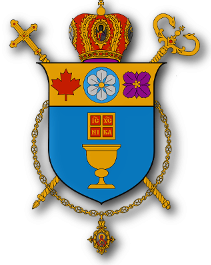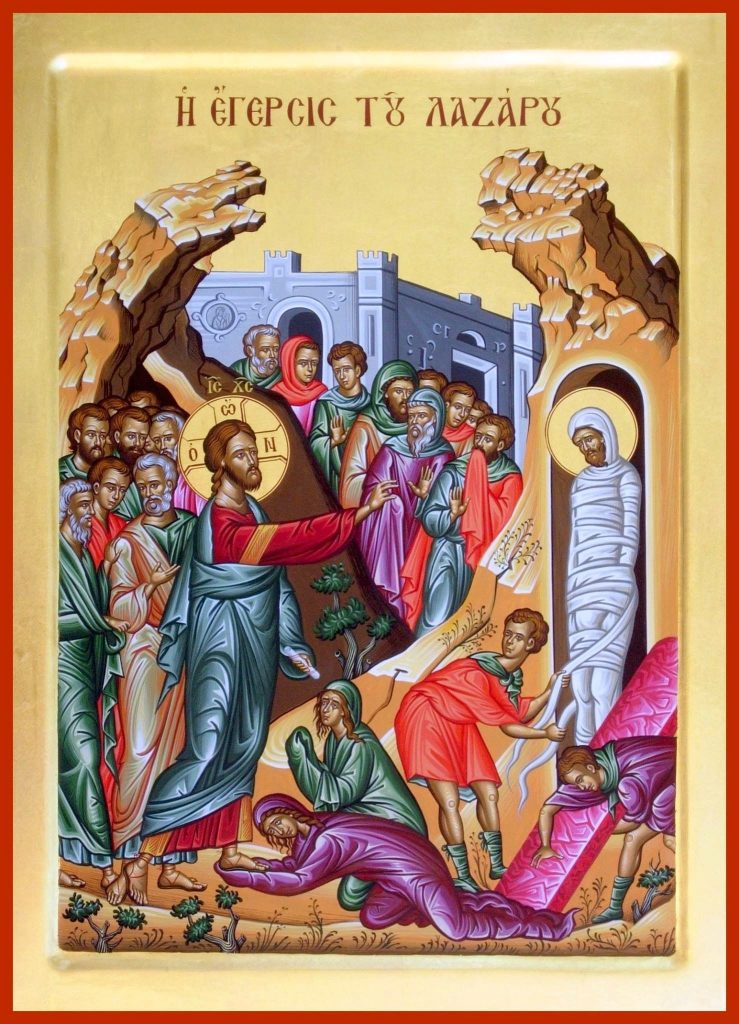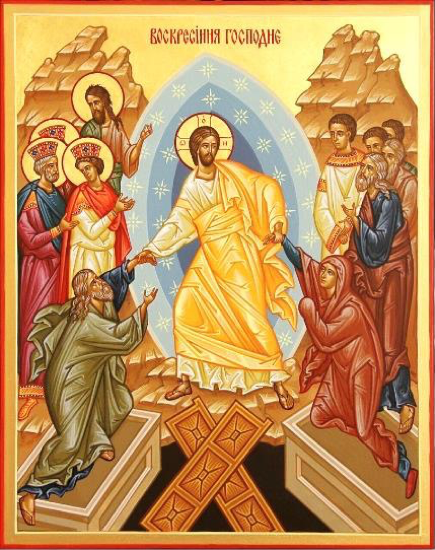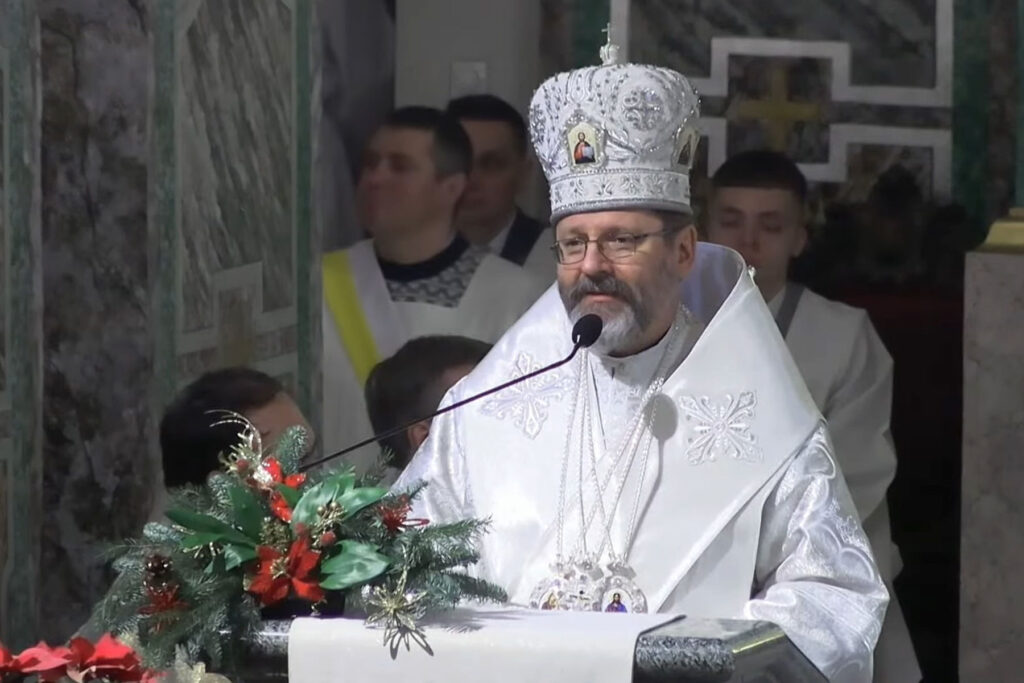
CHRISTMAS PASTORAL LETTER OF HIS BEATITUDE SVIATOSLAV
Most Reverend Archbishops and Metropolitans,
God-loving Bishops, Very Reverend Clergy, Venerable Monastics,
Dearly Beloved Brothers and Sisters,
in Ukraine and throughout the world
Fear not, for behold, I bring you good news of great joy
that will be for all the people (Lk 2:10)
Christ is born! Glorify Him!
Beloved in Christ!
I share a great joy with you, “For unto you is born this day in the city of David a Saviour, who is Christ the Lord” (Lk 2:11). For us who believe in the Lord Jesus, to celebrate Christmas is to open ourselves to a joy that lasts forever. The Son of God becomes one of us—God is with us!
In life, we often experience joyful or pleasant events: the birth of a child, a wedding, some achievement, dinner with relatives and friends, etc. However, life experience tells us that such moments are very fragile: a brief moment—and what brought us joy and pleasure, irrevocably sinks into nothingness, and we are left alone with pain, sadness and disappointment. There are many reasons for such a sudden change: a second of inattention, an accident, illness, human malice, or war, as we see in the fate of our long-suffering nation.
And yet, today, we announce to each other a joy that no earthly ordeal or misfortune can deprive us of—the invincible joy of Christ’s Nativity. This is not some fleeting experience or form of distraction that allows us to escape for a while from some daily or even cruel reality. The joy of Christmas is an immersion into the reality of God himself. The Son of God enters into human life, human reality, and takes upon himself the fragility and drama of human existence in order to bring a heavenly perspective into human horizons: “And suddenly there was with the angel a multitude of the heavenly host praising God and saying, ‘Glory to God in the highest, and on earth peace among those with whom he is pleased!’” (Lk 2:13-14).
Christmas invites us to an encounter with a God who comes as the Saviour of the world—an encounter that brings heavenly joy. However, in preparing for it, we inevitably become aware of our own weakness and unworthiness, which give rise in us to fear. In itself, this fear is not a bad thing, if it arises from the humility of a creature before its Creator, a disciple before his Master, a servant before his Lord. At the Divine Liturgy, the celebrant invites the faithful to Holy Communion with the words: “Approach with the fear of God and faith.” Awareness of our sins and weaknesses should not lead to paralysis, but to repentance and action. That is why the angel says to the shepherds, frightened by the bright vision of divine glory: “Do not be afraid!” The Lord overcomes our sinfulness and weakness. And so, a person should not be afraid of heavenly joy. We are called to joy—one that is authentic, sincere, profound, eternal. It is given to us as a generous gift from God. This is the profound meaning of the incarnation of the Son of God—He becomes one of us to pave for us the way to the joy of his Father and ours.
Therefore, despite all our limitations, anxieties and fears, as human beings we are called to accept this joy, to open our hearts to it. The angel explains how to recognize it: “And this will be a sign for you: you will find a baby wrapped in swaddling cloths and lying in a manger” (Lk 2:12). The Almighty God makes himself known “not in a royal palace, but among cattle, in the desert, in a cave...,” as we sing in the carol. The Apostle of the Nations writes about this when he paints a contrast between divine and human wisdom: “For the foolishness of God is wiser than men, and the weakness of God is stronger than men” (1 Cor 1:25). The divine path to true joy passes through weakness and patience, as once again notes St. Paul: “Therefore I will boast all the more gladly of my weaknesses, so that the power of Christ may rest upon me” (2 Cor 12:9).
Finally, a person is called to share the joy of Christmas: “The shepherds said to one another, ‘Let us go over to Bethlehem and see this thing that has happened, which the Lord has made known to us.’ And they went with haste and found Mary and Joseph, and the baby lying in a manger. And when they saw it, they made known the saying that had been told them concerning this child. And all who heard it wondered at what the shepherds told them” (Lk 2:15-18). Dear brothers and sisters, no matter where we are, let us sincerely share the joy of the Birth of our Saviour, so that it truly becomes “a joy for all the people.”
Celebrating Christmas from year to year, we enter ever more profoundly into the mystery of the incarnation of the Son of God in human history, which became an integral part of the history of our people with the Baptism of Rus-Ukraine. This year, when in the Ukrainian sky the enemy is trying to cancel out the radiance of the Christmas star with its missiles and bombs, we should pay attention not to the calendar, not to astronomical phenomena, but to the fact that Christ came today to be born in the body of a tortured, crucified, and wounded Ukraine. Perhaps it sounds paradoxical, but our victory in this war will come not by the power of the mighty of this world, but by the newborn Divine Child, of whom Isaiah prophesied: “For to us a child is born, to us a son is given; and the government shall be upon his shoulder, and his name shall be called Wonderful Counsellor, Mighty God, Everlasting Father, Prince of Peace” (Is 9:6).
To celebrate Christmas means not to be afraid of heavenly joy while engulfed in a sea of tears and blood. Allowing the joy of Christmas to enter our hearts guarantees our perseverance and indomitability, our ability to overcome all life’s challenges, as St. Paul explains: “I know how to be brought low, and I know how to abound. In any and every circumstance, I have learned the secret of facing plenty and hunger, abundance and need. I can do all things through him who strengthens me” (Phil 4:12-13).
Now, in this time of war, we should celebrate Christmas more than ever—solemnly and openly, carolling with joy—both at home and in parish churches, and on the streets of our towns and villages:
Blahoslovy nas, Dytyatko Bozhe (Bless us, Divine Child),
Dary nas nyni lyuboviu (Grant us love today)
Naj tsila syla pekla ne zmozhe (May all forces of hell fail)
Nas rozdilyty z Toboiu. (To separate us from You.)
Blahoslovy nas, my Tvoyi dity (Bless us, for we are Your children,)
Khrystos rodyvsia! Slavite! (Christ is born! Glorify!)
Khrystos rodyvsia! Slavite! (Christ is born! Glorify!)
Having received the power of the newborn Son of God, we are called to share it with our brothers and sisters in order to fortify their faith, confirm hope, and strengthen love. Singing carols is not some loud social gathering. To carol is to share the power and joy of Christ’s Nativity, which from the beginning already contains the Lord God’s promise of Paschal triumph. That is why many generations of ancestors drew inspiration and strength from their faith in the incarnate Christ, our crucified and risen Saviour, to fight against enslavers and invaders. Let us remind ourselves how our insurgents in hiding and the prisoners of Stalin’s concentration camps were strengthened by our ancestral carol to fight the enemy, how our underground Church carolled, despite the repressions of the communist authorities. In those dark times, the carol became a hymn of victory over the night of atheism and godlessness, a prophecy foretelling the inevitable fall of the prison of nations—the Soviet Union. Today, let the Ukrainian army sing carols at the front. Let those imprisoned, the wounded, and those brothers and sisters who are in the temporarily occupied territories carol. Let the joy of the Christmas carol in their mouths turn into a hymn of victory over the Russian invader. Let our cities and villages, our faithful families in Ukraine and abroad, our volunteers and activists sing carols. Let this carol become a space of solidarity and a sharing of our gifts—spiritual and temporal. Let our Christmas carol donations be a personal contribution—to support the Ukrainian army and provide aid to war victims.
Dear brothers and sisters! I warmly greet you all with the Birth of Christ: from East to West, from North to South—in Ukraine and abroad, on all the continents of the world. In a special way, I unite myself to our soldiers at the front. I embrace you with Christmas joy and thank you for your courage and heroism. I embrace those who were forced by the war to leave their homes or even their native land. I embrace our wounded, both military and civilian. With tears, I embrace those who lost relatives and friends in the past year. I extend my words of love and support to all in captivity or in temporarily occupied territories, who endure torture and abuse by the occupier and are unable to prepare for themselves a festive dinner nor pray in their native church on Christmas Day. I sincerely greet our volunteers and those who serve and work to eliminate the consequences of war and ensure the life of our peaceful cities and villages, especially our doctors, rescuers, and energy-sector workers.
From the bottom of my heart, I wish all of you the authentic joy of the children of God, a tasty kutia, a cheerful celebration of Christ’s Nativity, and a happy, peaceful, and blessed New Year!
Christ is born! Glorify Him!
🞤 SVIATOSLAV
Given in Kyiv at the Patriarchal Cathedral of the Resurrection of Christ,
on the day of our father St. Nicholas, Archbishop of Myra in Lycia, Wonderworker
the 19th (6th) of December in the Year of our Lord 2022
✙
РІЗДВЯНЕ ПОСЛАННЯ БЛАЖЕННІШОГО СВЯТОСЛАВА
Високопреосвященним архиєпископам і митрополитам,
боголюбивим єпископам, всечесному духовенству,
преподобному монашеству, возлюбленим братам і сестрам,
в Україні та на поселеннях у світі сущим
Не бійтесь, бо я звіщаю вам велику радість,
що буде радістю всього народу (Лк. 2, 10).
Христос народився! Славімо Його!
Дорогі в Христі!
Ділюся з вами великою радістю, бо «сьогодні народився вам у місті Давидовім Спаситель, Він же Христос Господь» (Лк. 2, 11). Для нас, що віримо в Господа Ісуса, святкувати Різдво Христове – це відкритися радості, яка триває вічно. Божий Син стає одним із нас – з нами Бог!
У житті ми не раз переживаємо радісні чи приємні події: народження дитини, весілля, особливий успіх, вечерю з близькими та друзями тощо. Проте життєвий досвід нам підказує, що такі моменти бувають дуже крихкими: мить – і те, що приносило нам радість і задоволення, безповоротно кане в небуття, а ми залишаємося сам на сам із болем, смутком і розчаруванням. Причин для такої раптової зміни є чимало: секунда неуважності, аварія, хвороба, людська злоба або ж війна, як бачимо на долі нашого многостраждального народу.
І все ж, ми сьогодні звіщаємо одне одному радість, якої нас не може позбавити жодне земне випробування і нещастя, – непереможну радість Христового Різдва. Це не миттєве переживання чогось, не розваги, які дають змогу на якийсь час втекти від буденної чи навіть жорстокої реальності. Радість Різдва Христового – це занурення в дійсність самого Бога. Син Божий входить у людське життя, людську реальність і переймає на себе крихкість і драму людського буття, аби вносити в людські горизонти небесну перспективу: «І вмить пристала до ангела велика сила небесного війська, що хвалила Бога й промовляла: “Слава на висотах Богу й на землі мир людям Його вподобання”» (Лк. 2, 13–14).
Різдво Христове запрошує нас на зустріч із Богом, який надходить як Спаситель світу, – на зустріч, що несе небесну радість. Проте, готуючись до неї, ми неминуче усвідомлюємо власну неміч і негідність, які породжують у нас страх. Сам собою цей страх не є чимось поганим, якщо випливає з покори створіння перед своїм Творцем, учня перед своїм Учителем, слуги перед своїм Господом. На Божественній Літургії служитель запрошує вірний народ до Святого Причастя словами: «Зі страхом Божим і вірою приступіть». Свідомість наших гріхів і немочей має вести не до паралічу, а до покаяння і дії. Саме тому ангел каже пастухам, переляканим світлим видінням Божої слави: «Не бійтеся!». Господь долає нашу гріховність і неміч. І тому людина не повинна боятися небесної радості. Ми покликані до радості—справжньої, щирої, глибокої, вічної. Вона дається нам як щедрий Божий дар. У цьому полягає глибоке значення воплочення Божого Сина—Він стає одним із нас, щоб прокласти нам дорогу до радості Отця свого й нашого.
Тому, попри всі свої обмеження, тривоги і страхи, людина покликана цю радість прийняти, відкрити для неї своє серце. Ангел пояснює, як її розпізнати: «І ось вам знак: Ви знайдете дитя сповите, що лежатиме в яслах» (Лк. 2, 12). Всемогутній Бог дає себе пізнати «не в царській палаті, а межи бидляти, у пустині, у яскині…», як співаємо в колядці. Про це пише Апостол народів, коли змальовує контраст між Божою і людською мудрістю: «Бо, нібито немудре Боже – мудріше від людської мудрости, і немічне Боже міцніше від людської сили» (1 Кор. 1, 25). Божа дорога до справжньої радості проходить через неміч і терпіння, як зауважує той же св. Павло: «Отож, я краще буду радо хвалитися своїми немочами, щоб у мені Христова сила перебувала» (2 Кор. 12, 9).
Відтак людина покликана різдвяною радістю ділитися: «Пастухи один до одного заговорили: “Ходім лишень до Вифлеєму та подивімся на ту подію, що Господь об’явив нам”. І пішли вони притьмом і знайшли Марію, Йосифа й дитятко, що лежало в яслах. Побачивши Його, вони розповіли, що їм було сказано про це хлоп’ятко; і всі, хто чув їх, дивувались тому, що пастухи їм оповідали» (Лк. 2, 15–18). Дорогі брати і сестри, хоч би де ми перебували, щиро ділімося радістю народження нашого Спаса, щоб вона справді стала «радістю всього народу».
Святкуючи Різдво Христове з року в рік, ми заглиблюємося в таїнство воплочення Сина Божого в людській історії, що з Хрещенням Русі-України стало інтегральною частиною історії нашого народу. Цього року, коли в українському небі ворог намагається приглушити сяйво різдвяної зорі своїми ракетами і бомбами, нам варто звертати увагу не на календар, не на астрономічні явища, а на те, що Христос сьогодні прийшов, щоб народитися в тілі замученої, розп’ятої і пораненої України. Можливо, це звучить парадоксально, але наша перемога в цій війні настане силою не могутніх цього світу, а новонародженого Божого Дитяти, про якого провіщав Ісая: «Бо хлоп’ятко нам народилося, сина нам дано; влада на плечах у нього; і дадуть йому ім'я: Чудесний порадник, сильний Бог, Отець довічний, Князь миру» (Іс. 9, 5).
Святкувати Різдво означає не боятися небесної радості серед моря сліз і крові. Дозволити різдвяній радості вселитися в наші серця – це запорука нашої стійкості й незламності, нашої здатності переборювати всі життєві виклики, як це пояснює св. Павло: «Умію бути в упокоренні, умію бути і в достатку: в усьому й в усіх обставинах я звик і насичуватися, і голодувати, жити в достатках і терпіти злидні. Я можу все в тому, хто укріплює мене» (Флп. 4, 12–13).
Тепер, під час війни, ми маємо святкувати Різдво більше, ніж будь-коли — урочисто і відкрито, колядуючи з радістю — як вдома і в парафіяльних храмах, так і на вулицях наших міст та сіл:
Благослови нас, Дитятко Боже,
Дари нас нині любов’ю,
Най ціла сила пекла не зможе
Нас розділити з Тобою.
Благослови нас, ми Твої діти,
Христос родився! Славіте!
Христос родився! Славіте!
Прийнявши силу народженого Божого Сина, ми покликані ділитися нею з нашими братами і сестрами для зміцнення їхньої віри, підтвердження надії і скріплення любові. Спів коляди – це не проведення гучної вечірки. Колядувати – це ділитися силою і радістю Христового Різдва, у якому Господь Бог від початку заклав обітницю пасхального тріумфу. Саме тому з віри у воплоченого Христа, нашого розп’ятого і воскреслого Спасителя, багато поколінь наших предків черпали наснагу та силу до боротьби з поневолювачами і загарбниками. Пригадаймо, як прабатьківською колядою скріплювалися для боротьби з ворогом наші повстанці в криївках та в’язні сталінських концтаборів, як колядувала наша підпільна Церква, незважаючи на репресії комуністичної влади. Коляда в ті темні часи ставала гімном перемоги над ніччю атеїзму та безбожництва, пророцтвом про неминуче падіння тюрми народів – Радянського Союзу. Сьогодні нехай колядує українське військо на фронті. Нехай колядують наші полонені, поранені й ті брати і сестри, які перебувають на тимчасово окупованих територіях. Нехай у їхніх устах радість різдвяної коляди перетвориться на гімн перемоги над російським загарбником. Нехай колядують наші міста і села, наші віруючі родини в Україні та на поселеннях, наші волонтери та активісти. Нехай ця коляда стане простором солідарності і ділення нашими дарами—духовними і дочасними. Нехай наші різдвяні дари на коляду будуть особистим внеском у підтримку українського війська та допомоги постраждалим від війни.
Дорогі брати і сестри! Із Різдвом Христовим сердечно вітаю вас усіх: від Сходу до Заходу, від Півночі до Півдня — в Україні і на поселеннях, на всіх континентах світу. В особливий спосіб єднаюся з нашими воїнами на фронті. Обіймаю вас різдвяною радістю і дякую вам за мужність і героїзм. Обіймаю тих, кого війна змусила покинути домівку чи навіть рідну землю. Обіймаю наших поранених, як військових, так і цивільних. Зі сльозами обіймаю тих, хто втратив рідних і близьких у році, що минає. Ділюся словами любові й підтримки з кожним, хто перебуває в полоні чи на тимчасово окупованих територіях, хто терпить катування і наругу окупанта й не має змоги приготувати собі різдвяної вечері чи на Різдво молитися в рідному храмі. Щиро вітаю зі святом наших волонтерів і тих, хто служить і працює для ліквідації наслідків війни та забезпечення життя наших мирних міст і сіл, зокрема лікарів, рятувальників та енергетиків.
Від щирого серця бажаю всім вам справжньої радості дітей Божих, смачної куті, веселих свят Різдва Христового та щасливого, переможного, мирного і благословенного прийдешнього року!
Христос народився! Славімо Його!
🞤 СВЯТОСЛАВ
Дано в Києві, при Патріаршому соборі Воскресіння Христового,
у день Святого отця нашого Миколая, архиєпископа Мир Лікійських, чудотворця,
19 (6) грудня 2022 року Божого

